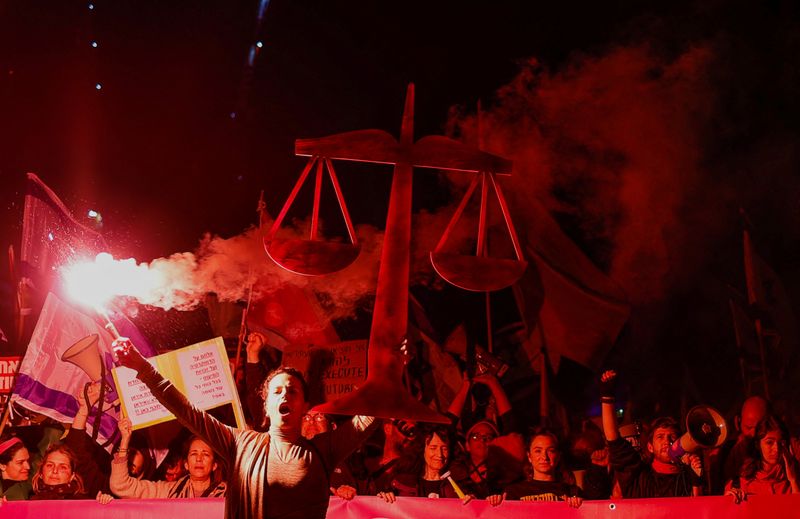JERUSALEM (Reuters) - Tens of thousands of Israelis took to the streets on Saturday for a fifth week of protests against judicial overhaul plans by Prime Minister Benjamin Netanyahu's new government which critics say threaten democratic checks on ministers by the courts.
The plans, which the government says are needed to curb overreach by judges, have drawn fierce opposition from groups including lawyers, and raised concerns among business leaders, widening already deep political divisions in Israeli society.
"We (are) ...here in order to demonstrate against the government of Israel under Netanyahu, which in our belief is against democracy and are going to do anything they can in order to take out democracy of Israel," said Illan Bendori, 70, at a protest in Tel Aviv.
Netanyahu has dismissed the protests as a refusal by leftist opponents to accept the results of last November's election, which produced one of the most right-wing governments in Israel's history.
"We are ...very proud of our democracy and he wants to make Israel something else. We will not agree, we will do everything in our power to stop it," Hadar Weis, 61, told Reuters at the protest in Tel Aviv.
The protesters say Israeli democracy would be undermined if the government succeeds in pushing through the plans, which would tighten political control over judicial appointments and limit the Supreme Court's powers to overturn government decisions or Knesset laws.

Additional protests and partial strikes are called for Monday when a first reading of the proposals is set to take place in the parliament.
Israel's N12 news released a poll on Saturday revealing that 62% of Israelis want the proposed judicial plans to be either paused or halted all together.